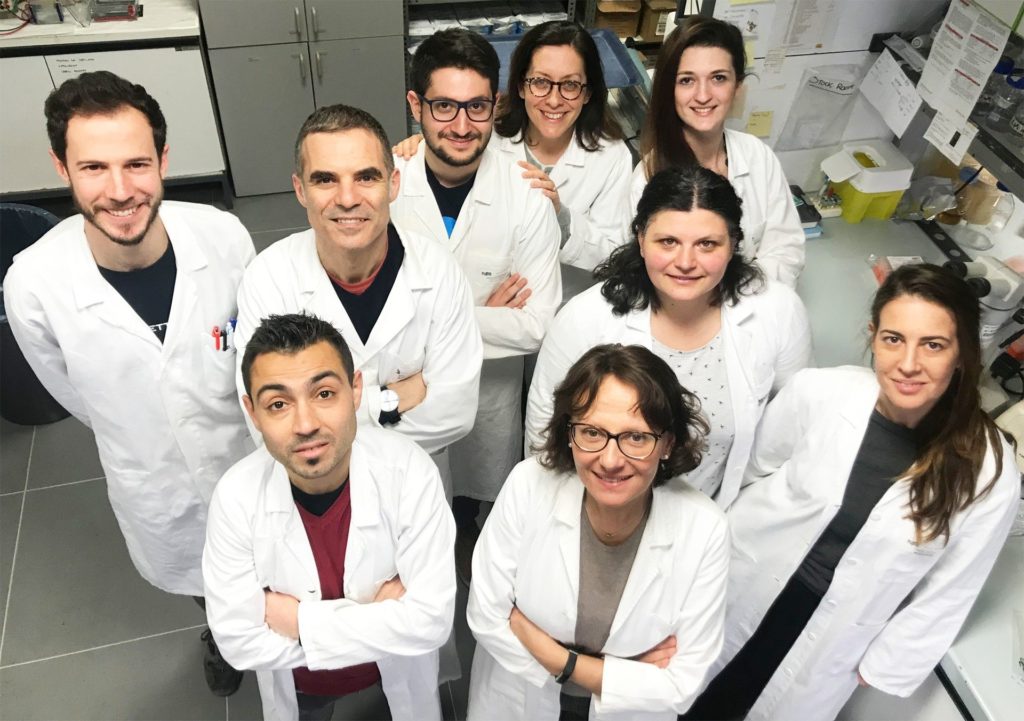Published May 21, 2020
Alessandra Boletta, Ph.D. | San Raffaele Scientific Institute
How did you first get involved in PKD research?
 Alessandra: I started my activity as a postdoctoral Fellow in the lab of Greg Germino at the Johns Hopkins University in Baltimore. The main topic of research in his lab was polycystic kidney disease. I came in with previous experience in gene delivery to the kidney and a naïve idea of applying gene therapy to ADPKD. My supervisor in Italy had a personal interest in the topic, driving my initial interest in the disease and to the initial contact with Dr. Germino.
Alessandra: I started my activity as a postdoctoral Fellow in the lab of Greg Germino at the Johns Hopkins University in Baltimore. The main topic of research in his lab was polycystic kidney disease. I came in with previous experience in gene delivery to the kidney and a naïve idea of applying gene therapy to ADPKD. My supervisor in Italy had a personal interest in the topic, driving my initial interest in the disease and to the initial contact with Dr. Germino.
What are you working on currently?
Alessandra: Our lab has several active lines of research on PKD. The main topic deals with the metabolic reprogramming occurring in PKD that was initially discovered by our group. We found that enhanced glycolysis (utilization of glucose) is a prominent feature of the disease. We are currently trying to understand mechanistically the basis of this alteration.
We also discovered that the use of a simple pharmacological compound called 2-deoxy-D-glucose effectively retards disease progression. We are developing this compound toward the clinic. In the meantime, we discovered that a much broader metabolic reprogramming occurs in the disease, including compensatory glutaminolysis. We are currently testing a second therapeutic intervention on this aspect. Our prediction is that acting on both simultaneously will result in an amplification (rather than in a sum) of the efficacy of treatment, and we are currently testing this hypothesis on animal models.
What would you like the patient community to know about your research?
Alessandra: There is an objective difficulty in bringing forward a compound toward the clinic for this specific disorder due to the complex, long, expensive, and articulated clinical trials required. But there is a realistic hope that the many recent discoveries around mechanisms deregulated in the disease, including metabolic reprogramming, will result in the identification of effective therapies with increased efficacy and tolerability as compared to the one currently available. Solid research on the basic aspects of the disease is the only path to achieve a rationally designed and efficient therapy, and possibly a cure.
Do you have a personal connection to PKD?
Alessandra: Not a personal one. But many years after having initiated my research on PKD I realized that one of my dearest friends in high school was affected by this disease. I’ve known her and her family for many years, but never realized that the kidney disease her mom suffered from was ADPKD. It is certainly an additional drive for research. Over the years, I contributed to the founding and running of a PKD patients’ association in Italy. Through that, I know many patients today with whom I have a personal connection which adds motivation to the daily work for me and for my lab.
What excites you most about this research?
Alessandra: My research interests have been and are mostly driven by curiosity. Studying what is deregulated in a disease allows us to better understand how our cells function in normal conditions and to re-utilize this information to better understand the disease. I am excited that we are trying to understand the basics of the disease (i.e. how the polycystins normally function in a cell) and this is also generating results that might lead to a therapy for patients. This is amazing and exciting.
What are some of your personal interests outside of research?
Alessandra: Most of my interests outside the lab are activities related to the mountains. My husband and I love hiking, skiing, and mountaineering in general. We both originally come from the Alps in Italy, and this shaped our interests. Travelling is our second passion.
Anything else you’d like to share?
Alessandra: One additional aspect that I love about research is the constant contact with young scientists and students. Training and mentoring the youngest is a satisfactory aspect of doing science, that propels us into the future irrespectively of our actual achievements.
Check out Dr. Boletta’s grant and others funded by PKDF here!
The PKD Foundation is the largest private funder of PKD research in the U.S. Since 1982, we’ve invested over $50 million in more than 1,300 research, clinical and scientific grants, fellowships, and scientific meetings. Each year, the Foundation identifies and supports the work of scientists and researchers from around the world who look for ways to treat and eventually cure PKD.
Our vision is to #endPKD. Donations fund necessary research that leads to more effective treatments and ultimately a cure for PKD.









0 Comments